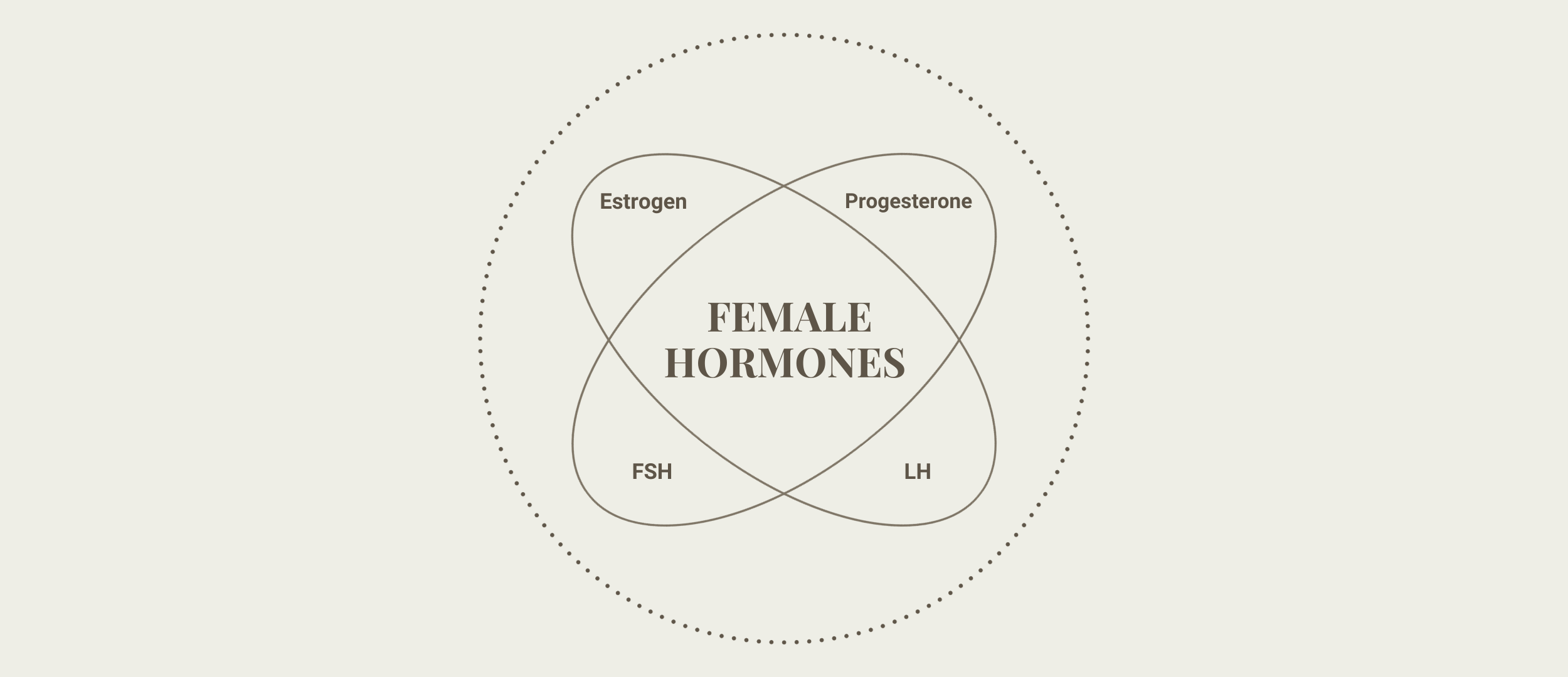Understanding Hormonal Changes and Improving Well-being in Women
As women, our bodies are intricate systems influenced by a delicate balance of hormones. These hormones play a significant role in shaping our overall well-being, from our energy levels to our emotional state. If you've been experiencing night sweats, shorter menstrual cycles, spotting, increased water weight, low energy, and heightened anxiety, it's time to delve into the world of female hormones. In this article, we'll explore how hormonal changes can affect your daily life and provide insights into regaining control over your health.
Decoding Hormones and Their Multifaceted Effects
Hormones: The Body’s Messengers
Hormones are the body's messengers, orchestrating a symphony of physiological processes that affect everything from sleep to mood to metabolism. They regulate your menstrual cycle, support fertility, and influence how your body stores and uses energy. When these hormones are in balance, you experience optimal well-being.
Estrogen: The Feminine Force
Estrogen, often referred to as the "female hormone," is a driving force behind our vitality. It promotes the development of secondary sexual characteristics, supports bone health, and bolsters mood by aiding serotonin production. However, estrogen's fluctuation can also contribute to mood swings, breast tenderness, and menstrual irregularities.
Progesterone: Nurturing Balance
Progesterone, known as the "pregnancy hormone," steps in post-ovulation to prepare the uterus for potential implantation. It induces a sense of calmness and regulates sleep. On the flip side, progesterone's drop prior to menstruation can lead to mood changes, irritability, and bloating.
FSH (Follicle-Stimulating Hormone) and LH (Luteinizing Hormone): The Fertility Duo
FSH and LH, the dynamic duo, play pivotal roles in the menstrual cycle. FSH encourages the growth of follicles in the ovaries, which house developing eggs. LH triggers ovulation, releasing the mature egg for potential fertilization. Imbalances in FSH and LH can lead to irregular cycles, difficulty conceiving, and other fertility challenges.
Ovarian Estrogen Secretion
Unveiling the Connection Between Hormones and Well-being
Mastering Energy Levels and Emotions
Hormonal fluctuations, especially those of estrogen and progesterone, can contribute to erratic energy levels and emotional turbulence. While estrogen offers an energetic boost, its drop can result in fatigue, memory changes and mood swings. Progesterone's calming effects can counterbalance the anxiety associated with hormonal changes.
Navigating Weight and Body Changes
Estrogen's influence extends to metabolism and body composition. Its imbalance might lead to weight gain and water retention, particularly around menstruation. Being attuned to these shifts can empower you to make informed lifestyle choices.
Taking the Reins on Hormonal Health
Empowering Lifestyle Adjustments in a Complex Landscape
Maintaining hormonal health is a multi-dimensional endeavor. While estrogen, progesterone, FSH, and LH play central roles, it's essential to recognize that they don't operate in isolation. These hormones journey through our bloodstream alongside a host of companions, including other hormones, medications, environmental agents, and inflammatory compounds. Sometimes, these factors can interact, influencing the delicate balance of female hormones.
The Intricate Web of Interactions
Consider the interplay of various elements that affect hormonal equilibrium:
Stress Hormones (Cortisol): Prolonged stress can lead to imbalances in cortisol levels. Elevated or diminished cortisol, an inflammatory hormone, impacts blood glucose regulation and can take precedence over fertility concerns.
Thyroid Hormone: With its role in regulating the body's metabolic rate and hormone processes, thyroid hormone can have a domino effect on hormonal health.
Dietary Changes: Shifting from one dietary pattern to another—such as transitioning to a vegetarian, carbohydrate-rich, or keto diet—can disrupt the rhythm of your menstrual cycle.
Influence of Dietary Factors
The food we consume wields significant influence:
Excesses or Deficiencies: Overindulgence in saturated fats, sugar, refined carbohydrates, alcohol, and coffee can throw hormones off balance. Conversely, insufficient intake of carbohydrates, vitamins, minerals, and protein can also impact hormonal harmony.
Liver Function: The liver's role in processing hormones and toxins is vital. Impaired function or overload from medications, internal toxins, or environmental pollutants can disrupt hormonal balance.
Weight Matters: Both obesity and being underweight can trigger hormonal shifts, potentially leading to irregular cycles and other health challenges.
The Emotional and Traumatic Connection
Traumatic experiences, whether emotional or physical, cast a shadow on hormonal health:
History of Trauma: Brain injuries, concussions, and emotional trauma or abuse can impact the delicate interplay of hormones, potentially causing imbalances.
Charting a Course for Hormonal Well-being
Navigating this intricate hormonal landscape demands a holistic approach:
Balanced Nutrition: Prioritize a diet rich in whole foods, balanced macronutrients, and essential vitamins and minerals to provide your body with the building blocks it needs for hormonal equilibrium.
Mind-Body Connection: Incorporate stress-reduction techniques such as mindfulness, meditation, and yoga to manage cortisol levels and promote emotional well-being.
Partnering with Professionals: Persistent symptoms warrant professional evaluation. Healthcare providers can offer insights, conduct tests, and tailor interventions to address specific imbalances. Hormone therapy, if appropriate, can be a valuable tool in your journey.
As you embark on the journey toward optimal hormonal health, remember that it's not just about understanding estrogen, progesterone, FSH, and LH. The symphony of hormones is joined by a chorus of influencers that can shape your well-being. By embracing a holistic approach that considers the interconnectedness of these factors, you can pave the way for balanced hormones and a brighter, healthier future. Your commitment today lays the foundation for a harmonious and fulfilling retirement, brimming with vitality and joy.
Dr. Janice Dacyshyn is available to provide naturopathic support to Edmonton and Alberta-based clients via online video and phone appointments. Click the button below to book an appointment today.

